JOE BASRALIAN AND THE WINIFRED M.AND GEORGE P. PITKIN FOUNDATION

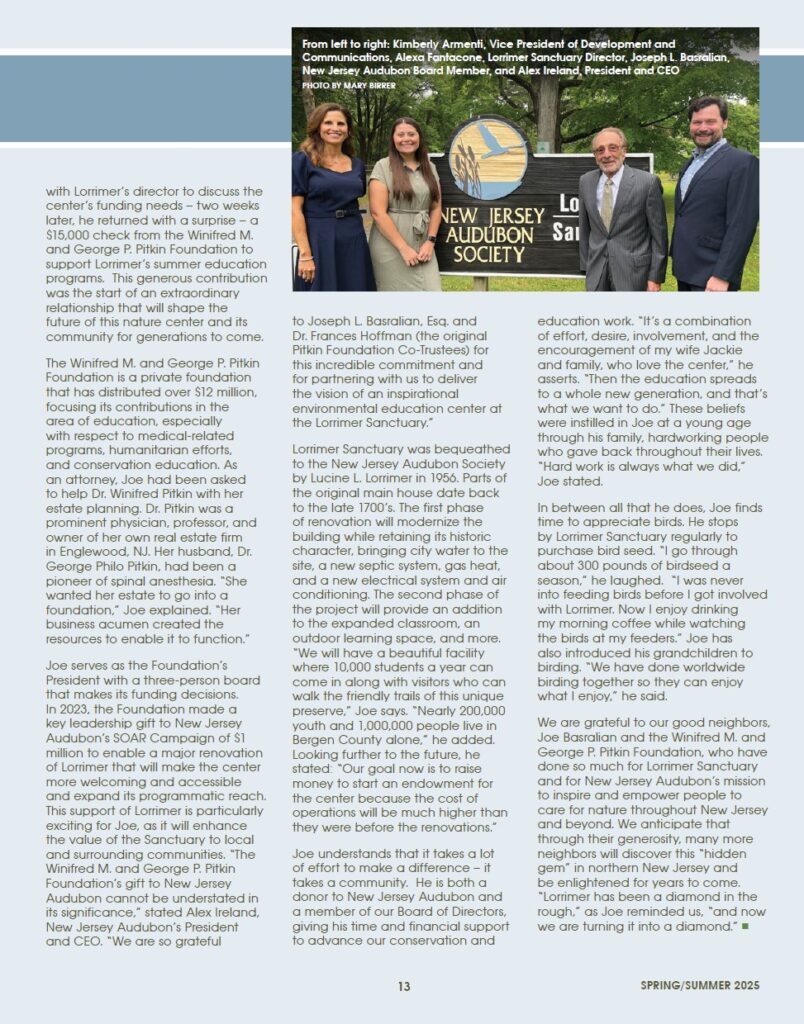
JOE BASRALIAN AND THE WINIFRED M.AND GEORGE P. PITKIN FOUNDATION Read More »
Bruce Rosenberg has recently secured use variance approval for a Town Square Adult Medical Day Care from the Fair Lawn Zoning Board of Adjustment.
This will be the first Town Square to be located in Bergen County. Town Square provides a unique re-creation of a 1950’s type Town Square in which Reminiscence Therapy is used to treat members with memory loss issues.
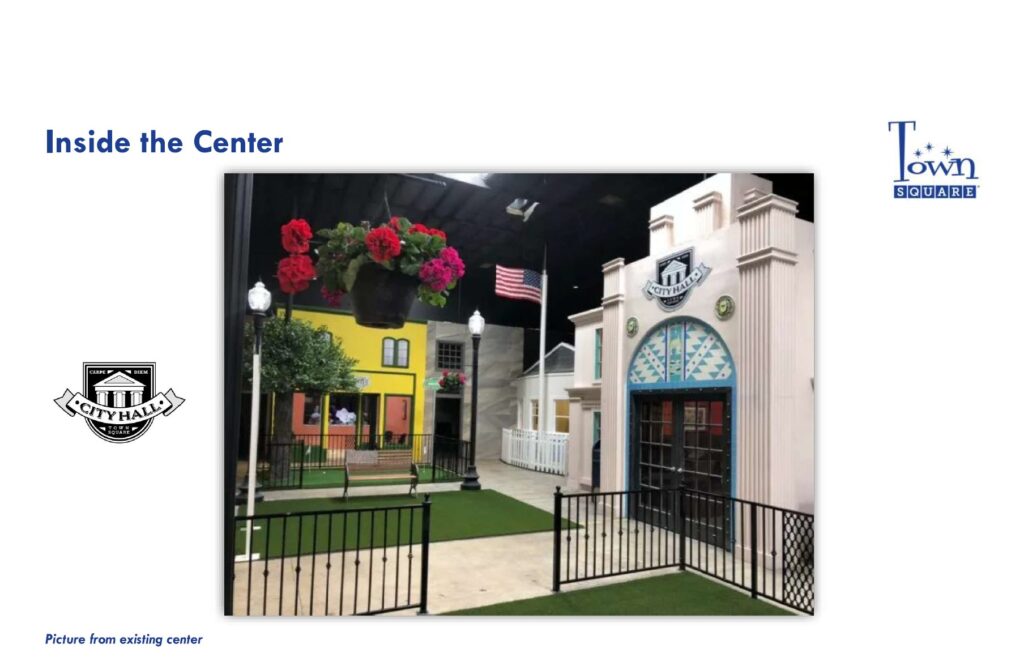
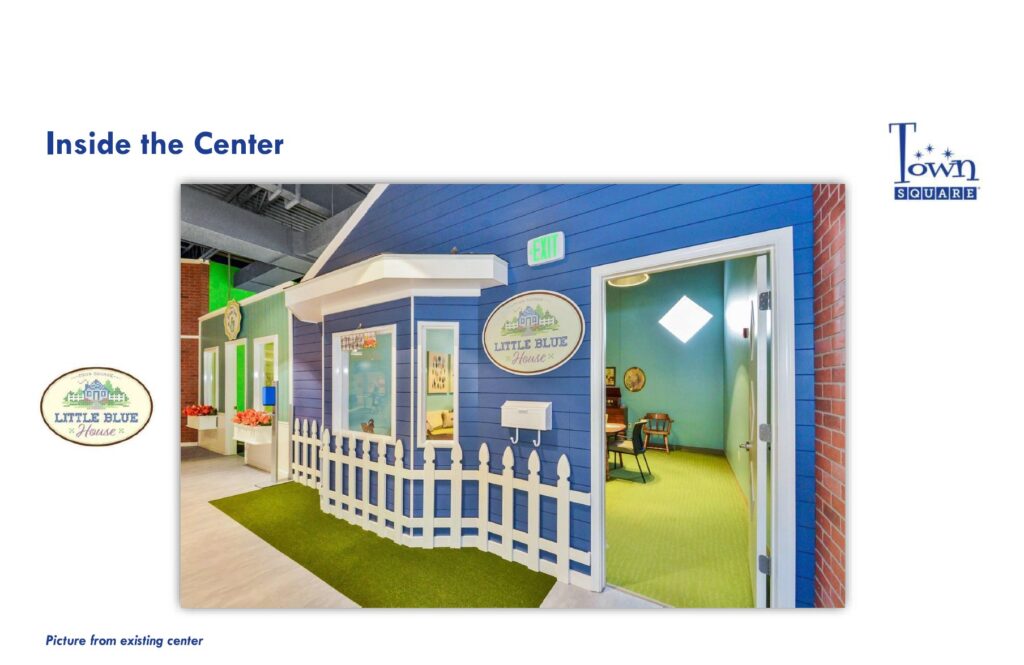
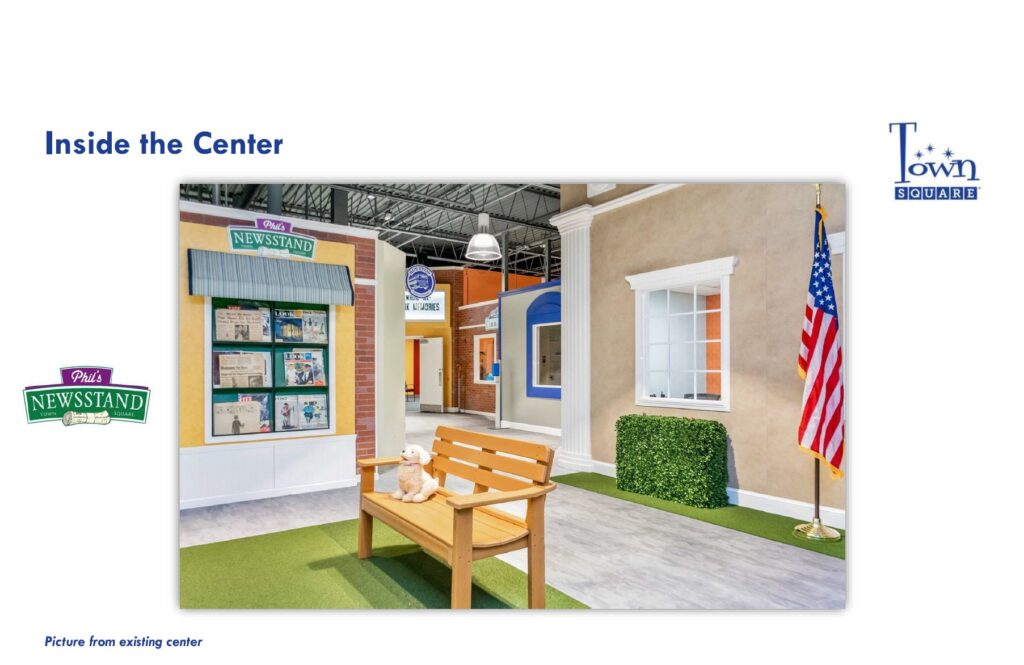



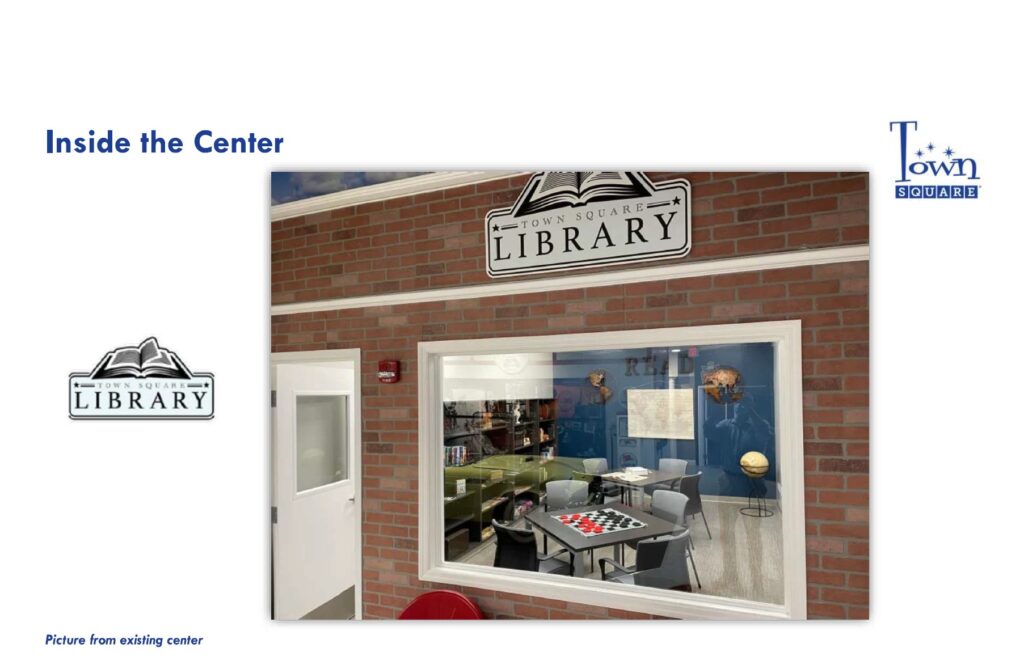
Bruce Rosenberg Secures variance approval from the Fair Lawn Zoning Board of Adjustment Read More »
On January 16, 2024, Governor Murphy signed legislation (S-4265/A-5912) into law. This law will boost the number of available liquor licenses and ease a range of restrictions that have hindered breweries and distilleries throughout the State. The following is a summary of the changes that come with the new law.
Inactive/Pocket Licenses
There are currently more than 1,300 inactive or pocket licenses held throughout the state. Inactive licenses are associated with a specific location but are not in use. Pocket licenses are those that have been purchased but are not currently attached to any specific location. The inactive and pocket licenses are one of the leading causes of the low supply of available licenses, as well as the high price of the licenses. The Division of Alcoholic Beverage Control estimates a 15% increase in available licenses with the implementation of the new law.
Under the new law, if a license has remained inactive for two consecutive license terms (a total of two years) the license holder will be obligated to either sell it or use it. If the license holder does not exercise either option, the license may be transferred to neighboring municipalities. Additionally, a municipality where an inactive consumption license has lapsed and has not been renewed for eight years before the law takes effect, may issue a new consumption license at a public sale for use at a licensed premises located within the town.
Mall Licenses
The new law creates a new class of retail consumption licenses which the Governor hopes can create many new licenses throughout the State. The law allows municipalities to issue up to two new licenses for food and beverage establishments in shopping malls with a minimum of 750,000 square feet; and up to four new licenses for establishments in shopping malls with a minimum of 1.5 million square feet.
With the large number of malls in the state, and the struggles malls have seen since the pandemic and the rise of online shopping, this law can bolster the survival of malls throughout the state.
Breweries and Other Similar Establishments
The new law eases restrictions that have hindered breweries and other similar businesses disturbing their ability to compete against industries in neighboring states. It takes away the requirement to provide tours of the premises to patrons and allows them to hire servers and wait staff. The law will also allow them to sell certain food items (i.e. chips, nuts, and packaged snacks) and non-alcoholic beverages. Additionally, the law allows them to collaborate with outside vendors, host unlimited onsite event and private parties, host a maximum of 25 off-site special events, and participate in up to 25 events hosted by a holder of a special affairs permit. The law also increases the number barrels permitted to be manufactured per year from 100,000 to 300,000 and allows the license holders to sell and distribute 50% of the beer produced on premises each year directly to retailers, rather than having to sell solely to wholesalers. Finally, the law creates a new farm-brewery license that allows the holders to produce malt alcoholic beverages, up to 2,500 barrels per year, for retail sale to consumers for consumption off the licensed premises.
The new law will give these establishments more opportunities, will allow them to compete against businesses in neighboring states with laxer laws and will allow them to thrive in the industry.
review of new liquor License Laws in new jersey Read More »
On Thursday, June 2nd from 8:00(AM) to 10:30(AM) Building Bergen will be having panelists of community leaders and business executives discuss what has happened in Bergen County over the past two years, where things stand today and what we can look forward to in the near future. You won’t want to miss this!

Building Bergen – Real Estate Today Read More »
In this issue: Hackensack Redevelopment: Where It’s Come From, Where It’s Going • Hackensack On the Rise • Residential Real Estate in Hackensack
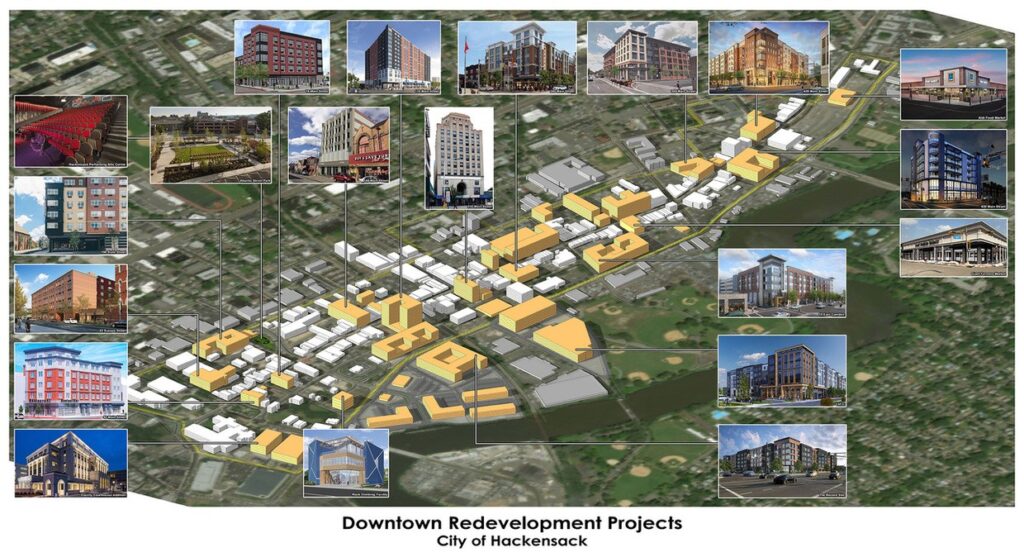
It may seem a short time ago – or it may seem like a lifetime – but it has been ten years since the Hackensack redevelopment plan was first adopted. Building Bergen spoke with Francis Reiner, Senior Urban Designer with Hasbrouck Heights-based DMR Architects, but perhaps better known as Hackensack’s redevelopment consultant, for an update on the City’s redevelopment efforts.
To anyone who hasn’t visited Hackensack in a while, the first surprise is to see Main Street as a two-way thoroughfare, which hasn’t been done since the early 1970s. Reiner says this was identified as one of the essential changes that needed to be made. He considers this change already to be a “monumental success,” one that will dramatically improve the retail and commercial environment.
On the site of the former Record building, the exterior of the first building has been completed and work is still being done on its interior. Completion is expected in January 2022. Work has begun on a second building, with small retail shops fronting on River Street. The Hackensack Planning Board has approved the remainder of the plan for the site, including two more residential buildings and two additional stand-alone retail buildings. When it is completed – in approximately three to five years – the site will include 700 residential units and 40,000 square feet of commercial retail space.
On Lot C, across from the Icehouse, the first six-story building is 75% complete, and it is expected to be done in early 2022. The building is primarily residential and includes 3,000 square feet of retail space as well as 200 public parking spaces to accommodate the needs of the adjacent commercial uses. When it is complete, construction will commence on a second, all-residential building, with 378 total units, which is expected to be complete in 2024.
The building at 210 Main Street is complete and fully leased, and 170 Main Street, the 14-story building, dubbed “The Brick,” should have a certificate of occupancy soon. The Brick, which includes 384 units and 10,000 square feet in retail space, will start leasing shortly. A second building is scheduled to be presented to the Planning Board before the end of the year and will include a rooftop restaurant.
Developers indicate that leasing activity on opened buildings has been very strong, says Reiner. There has been a higher absorption rate than originally anticipated, which Reiner sees as a sign of strong support for the Hackensack redevelopment effort.
Among the initiatives still to come is 321 Main Street, at the corner of Berry Street. This mixed-use development has been approved by the Planning Board and is under construction. In addition, a sister building will begin construction in 2022 at the corner of Main and Passaic Streets that will mirror the Main and Ward Streets project that was completed in early 2021.
The City has sold the former Building Department, and a redevelopment project has been proposed and approved adjacent to the Anderson Street Train Station. The mixed-use building, with 225 residential units, should begin construction in 2022. This, says Reiner, shows Hackensack’s support of public transportation, as will another project near the Essex Street train station, that will begin construction in the latter half of ’22.
All of Hackensack’s new projects will add a combined 4,000 to 6,000 residential units in the downtown area and near the train stations, as well as an estimated $10 to $15 million in new tax revenue. This, says Reiner, will contribute to reestablishing downtown Hackensack as a “destination” in Northern New Jersey.
Reiner feels the 10 years have gone quickly, especially considering the skepticism with which the plans were originally greeted. He says it has been very gratifying to play a role in the City’s redevelopment, especially seeing it take shape before his eyes. He adds, “I give full credit to the mayor and council for staying the course and implementing all that has happened.”

By Faith Miros, Esq.
A drive along Hackensack’s Main Street tells much about the renaissance of Hackensack. Under-utilized or vacant commercial properties, and even residential properties, are being replaced with mixed use projects aggregating over 3,000 modern apartment units and thousands of square feet of retail space. Existing businesses have been given facelifts and are experiencing an uptick in activity while new businesses are entering the scene in droves.
With financial incentives offered by the City as well as the City’s premier location within Bergen County, it’s no question why Hackensack is on the rise and at such a fast pace with over 25 development projects underway. Hackensack has three designated Opportunity Zones and in many instances is offering PILOT programs and tax abatements. Hackensack has two New Jersey Transit railroad stations that run directly to the Secaucus transfer station as well as the regional New Jersey Bus Station that provides direct access throughout Bergen County and beyond and to New York City. Hackensack has access to Routes 4, 17, 46, Interstate 80, and the Garden State Parkway, and is only 8 miles from the George Washington Bridge and 13 miles from the Lincoln Tunnel. It is home to the largest medical center in New Jersey, the Bergen County offices and courts, and a university.
The pandemic increased Hackensack’s allure as Manhattanites flocked across the Hudson River feeling as though Manhattan had lost its purpose. In just a few years, 3,000 units have been constructed and are either occupied or in the planning phase, with all the buildings fronting Main Street providing retail space.
Winne Banta has been an integral player in the Hackensack redevelopment plan, with representation spanning the entire spectrum from securing site plan approvals to the acquisition of liquor licenses for the development projects. We expect the current projects to near their conclusion within three or so years and for Hackensack to inspire more residential and commercial development for years to come.
Faith Miros concentrates her practice in real estate and business law. She has represented major commercial landlords, real estate developers and high net worth investors in the acquisition, disposition and leasing of commercial properties, including industrial, mixed-use, retail, office and multi-family. She can be reached at fmiros@winnebanta.com or (201) 487-3800.

By Robert Abbott
Everyone’s talking about what has happened to the real estate market in Bergen County over the last year. Lines at open houses, multiple offers, and bidding wars for homes are the new normal. Properties are appreciating at a higher rate than in the past.
Historically, when home purchasing is up, the rental market is down. That is not the case in Bergen County today. There is a demand for all types of residential properties. Bergen County has benefited from people moving from urban to suburban areas. There has been an influx of people looking for more open space and dwellings with home offices.
Look no further, as Hackensack, one of the most progressive cities in Bergen County, has implemented a downtown rehabilitation plan to re-develop its Main Street and re-establish itself as a regional destination. Bergen County is one of the most affluent counties in the state and Hackensack is the epicenter of the county. It has universities, a world-renowned hospital, the county courthouse, and several transportation choices.
It is estimated there will be approximately 6,000 residential rental units that will be built. With the statewide average experiencing accelerated rental rates and vacancy rents below 6%, builders can’t keep up. The consumer wants new products with lots of amenities. The future is bright for Bergen County and Hackensack.
Robert Abbott is Broker/Owner with Berkshire Hathaway Home Services Abbott Realtors. He can be reached at bhhsabbott@gmail.com or (201) 891-2223.
If you have questions concerning BUILDING BERGEN, or have ideas for what you would like to see in future newsletters, contact Alan Levine at alevine@levinemarketingsolutions.com.
Building Bergen Newsletter December 2021 Read More »

An Interview with Michael McPartland, Mayor of Edgewater
Michael J. McPartland, lifelong resident of Edgewater and Mayor of the Borough since 2015, has a very optimistic outlook for his community.
In the summer of 2021, he feels very fortunate that no one in Edgewater’s senior centers tested positive for COVID. To ensure the seniors’ continued good health, the borough teamed up with nearby Hackensack Meridian Palisades Medical Center to provide vaccinations for the entire senior population. Buses picked them up and nurses provided jabs right on the bus. Nearly 1,000 Pfizer vaccines were dispensed in short order. In an effort coordinated by Borough Hall, once the seniors were covered, others in Edgewater were invited to get their vaccines as well. Says McPartland, “We are very proud of this initiative. Honestly, I wasn’t sure this was going to work.”
Edgewater businesses, too, weathered the COVID storm. Many took advantage of the Bergen County CARES Small Business Grant Program, an economic stability measure designed to provide financial relief to small businesses negatively affected by the COVID-19 pandemic and to increase overall business confidence during the recovery. Over $50 million was dispensed to businesses throughout the County.
After a COVID-limited summer in 2020, Mayor McPartland describes the summer of ’21 as “a new birth, a new beginning.” He adds, “It’s like we didn’t miss a beat.” The Borough’s recreation center is fully operational and recently hosted its annual summer picnic – a luau – for over 100 seniors. The summer youth recreational program also is operating at full force, and the summer concert series at Veterans Field is back in business.
There is always development happening in Edgewater, and 2021 is no exception. Of note currently is the Hess Oil Terminal property on River Road, amounting to nearly 19 acres. The developer, 615 River Road Partners, LLC, proposed replacing the terminal with 1,874 new units, which was determined to be far too large for the community. In what McPartland describes as “one of the best land acquisitions by a municipality in the history of Bergen County,” Edgewater succeeded in reducing the number of units by half and transferring the entire western portion of the property, valued at $12 million, to the community to build a future middle school, while also settling the community’s Affordable Housing obligation with the State of New Jersey, resulting in 180-240 new affordable units. According to Mayor McPartland, “We are receiving a property that would otherwise cost millions to purchase, for free, as well as solving state-mandated, affordable housing requirements, bringing our community a public riverfront park and walkway, and gaining much-needed transportation improvements in Edgewater, with a new ferry stop and added green space.”
At the same time, a former golf driving range is being developed into a 230-unit high-rise project, and a Superfund site remediation is nearing completion.

Northern New Jersey Commercial Real Estate Market
By Joseph L. Basralian, Esq.
The commercial real estate market in Northern New Jersey is alive and well. There had been an immediate downturn after the New Jersey lockdown, not so much because clients didn’t want to buy or sell or refinance, but rather because there was little or no access to sellers, buyers, brokers, or lenders by virtue of the lockdown itself. By May of 2020 that began to change, and the pent-up backlog of commercial real estate transactions started moving forward at a pace equal to or greater than 2019.
The construction of multiple family residential buildings in Northern New Jersey continued almost unabated during COVID. Thousands of residential rental units are being constructed throughout the region with more new projects — large and small — announced nearly every week. Even where construction was deemed nonessential, it continued on a number of buildings that had to be enclosed to prevent deterioration of what had already been constructed prior to the pandemic. Most of the multiple family housing market is based upon a very active market demand, although some is driven by the need of municipalities to meet their third-round affordable housing allocations. Except perhaps on the New Jersey Gold Coast, new, large, multiple-family construction is based on a demand for new rentals with excellent amenities near mass transportation, rather than for sale as condominium units. Moreover, construction and permanent loan rates are stable, and are at the lower end of rates over the last several years.
Prices continue to rise for commercial buildings, especially in the warehouse/distribution sector. Even the strip shopping centers retail market seems to have stabilized, albeit at lower occupancy rates than in 2019. The biggest problem facing owners is that many tenants have exploited the inability of their landlords to bring suits for possession for those tenants who have elected not to pay rent even when they have the ability to do so. The only unaffected sector is the office market. However, it is unaffected because the general vacancy has been over twenty percent for at least five years. That same sector has seen very little new construction other than for owner occupied buildings that are generally small in nature. In order to bring down vacancy rates, many owners are repositioning their office buildings for laboratory/testing and research as well as for more traditional medical uses such as doctors’ offices and surgical and imaging centers. The medical sector represents approximately twenty to thirty percent of new tenants in office buildings in Northern New Jersey. The percentage of such uses is even higher in other parts of the country.
The Bergen County real estate market continues to be in demand and, barring the unforeseen, looks to remain strong for the next several years.
Northern New Jersey, and especially Bergen County, has seen construction in the commercial markets remain steady with the demand for warehouse buildings high and escalating per square foot rents. New Jersey Senate Bill (S-3688) seeks to curb what it terms “warehouse sprawl” by requiring municipalities to seek input from neighboring towns before approving a new warehouse project. The Bill’s sponsors posture that “warehouse sprawl has become a real threat to the quality of life in communities throughout the State and the rapid surge in construction of larger sized warehouses has a regional impact that crosses municipal boundaries to neighboring towns” and that they should have a voice in the approval process. It is sometimes difficult and time-consuming to obtain approval from a municipality without obtaining approval from neighboring municipalities, which will only further slow the approval process. Instead of fostering a strong warehouse/distribution market, especially along the interstates, more and more municipalities are adopting ordinances prohibiting the construction of warehouse/distribution buildings altogether because of concern that the existing infrastructure is inadequate and the impact on local traffic, thereby making all the previously approved warehouses non-conforming uses. It is perhaps shortsighted for municipalities to do so. The current warehouse/distribution industry pays millions and millions of dollars of annual taxes to those municipalities and their school budgets without sending children to their schools or placing a high demand on their municipal services. The pandemic has shown the need for larger warehouse/distribution facilities and those types of facilities could be driven to other states where no restrictions exist. How the proposed Senate Bill, if adopted, will impact the warehouse/distribution industry, both in Northern New Jersey and the state as a whole, remains to be seen.

Northern New Jersey Residential Real Estate Market
By Robert Abbott
Everyone is talking about it. The real estate market is hot. But will it last? What will the future bring over the next six months – or six years?
Developers and builders are trying to predict the future. The statistical information shows that more properties are selling than last year. According to the New Jersey MLS system, 3,858 single-family homes sold in Bergen County in the first half of 2021. During the same time period last year, 2,760 homes sold. This reflects a 40% increase. Houses are selling faster, at only 46 days on the market, and at approximately 1.6% off the asking price. This all adds up to a lack of inventory.
Builders are looking to bridge the gap by creating new products for the marketplace. The consumer is looking for affordable new construction. With Bergen County’s lack of vacant land, builders are turning to rezone other types of properties for residential use. Golf courses, farms, industrial sites, and office complexes are all in play to be redeveloped. Smart town leaders understand the value of new development in their communities, creating product that taxpayers want, creating tax rateables, reaching their affordable housing requirement, and enhancing the value of all town properties.
Even though people typically are averse to changes in their community, once projects are complete, they are usually very satisfied with the results. Forward-thinking, progressive community leaders can advance their towns in so many ways. Developers want to work in the communities that show a spirit of cooperation and sensible development. They will, however, shy away from towns in which it will take three years just to get approvals. Currently, developers are looking for shovel-ready projects and will pay a premium for them. They are trying to fill an immediate need.
Banks are loosening up financing restrictions on this type of development. Now, more than ever before, they are looking to finance for-sale products. Although the market in the higher range is still sluggish, there is a substantial need for properties under a million dollars. People want new designs, modern kitchens and stylish amenities, and are less interested in large square footage and acreage. Smaller single-family homes, condos and townhouses are the major need in the Bergen County market.
Robert Abbott is Broker/Owner with Berkshire Hathaway HomeServices Abbott Realtors. He can be reached at bhhsabbott@gmail.com or (201) 891-2223.
If you have questions concerning BUILDING BERGEN, or have ideas for what you would like to see in future newsletters, contact Alan Levine at alevine@levinemarketingsolutions.com.
Building Bergen Newsletter August 2021 Read More »